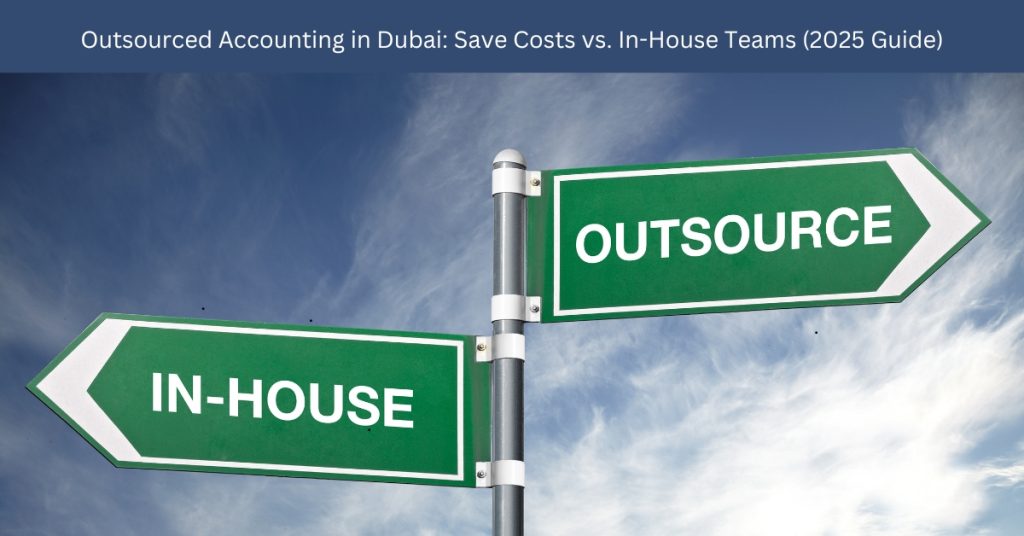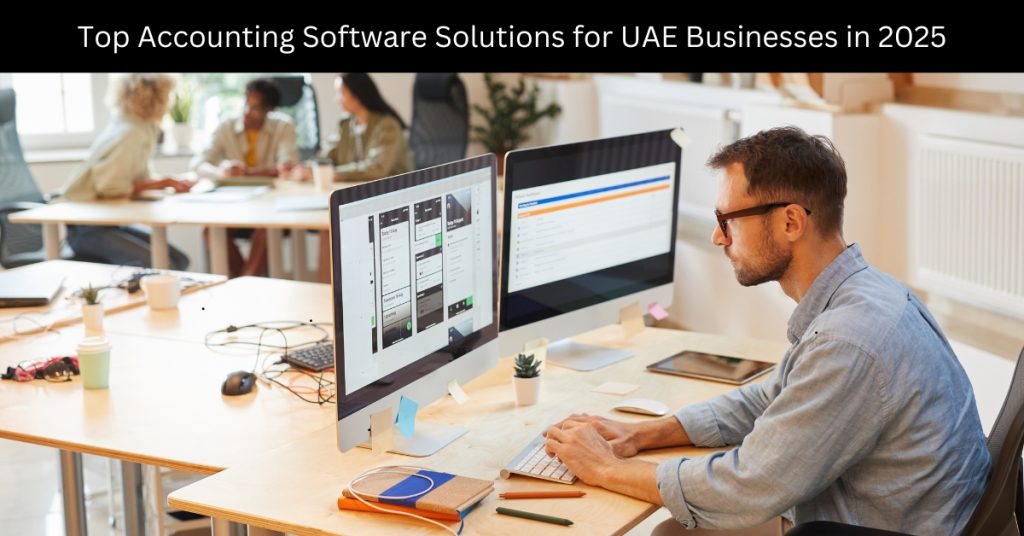Selecting the right accounting software can significantly enhance your business’s financial management, efficiency, and growth. With a variety of tools available—from basic spreadsheets to advanced ERP systems—businesses must evaluate their size, needs, and budget before committing.
This blog article walks you through essential features, benefits, types, and top software options, helping you confidently choose a solution that aligns with your goals and streamlines your financial operations.
Key Takeaways!
| Topic | Summary |
|---|---|
| Importance of Accounting Software | Enhances accuracy, efficiency, compliance, and business growth |
| Core Features | Includes invoicing, reporting, payroll, tax prep, integration, and security |
| Types of Software | Spreadsheets, Commercial Tools, ERP, Cloud, Offline, Custom-built |
| Selection Criteria | Business size, budget, usability, support, integration, and data security |
| Leading Options | QuickBooks, Zoho Books, Xero, Tally, FreshBooks, Refrens, SAP, Dynamics 365 |
| Decision Checklist | Covers features, reviews, pricing, scalability, support, and trial options |
The Significance of Effective Financial Management
Efficient financial management is a cornerstone of business success. Manual methods and outdated spreadsheets are no longer sufficient. Today’s organizations need real-time financial visibility, automation, and reliable reporting—all achievable with the right accounting software.
But with hundreds of software solutions available, businesses often struggle to pick the one that aligns with their operational requirements and growth ambitions. This guide aims to simplify that process and empower you to make a well-informed decision.
What Is Accounting Software?
Accounting software is a digital tool designed to help businesses record, track, and manage financial transactions. These platforms streamline critical functions, such as:
-
Bookkeeping and ledger management
-
Invoicing and bill payment
-
Payroll processing
-
Financial reporting
-
Tax preparation
By automating routine tasks and minimizing errors, accounting software enhances decision-making, improves efficiency, and ensures compliance with tax and financial regulations.

Core Functions and Capabilities of Accounting Software
Modern accounting platforms go beyond basic bookkeeping. Here are some key features to consider:
1. Transaction Recording
Accurate logging of expenses, income, assets, and liabilities to maintain a balanced ledger.
2. Invoice and Bill Management
Generate professional invoices, automate reminders, and track pending payments.
3. Bank Reconciliation
Automatically match internal financial records with bank statements to identify discrepancies.
4. Financial Reporting
Access to income statements, balance sheets, cash flow statements, and real-time dashboards.
5. Tax Management
Generate tax-ready reports, automate calculations, and ensure regulatory compliance.
6. Payroll Processing
Calculate employee wages, handle tax deductions, and generate payslips.
7. Inventory Tracking
Monitor stock levels, automate restocking, and sync with point-of-sale systems.
8. Multi-Device and Cloud Access
Real-time data access across desktop, mobile, and web for improved collaboration.
9. Integration Support
Connect with CRM, ERP, and e-commerce platforms to streamline workflows.

Why Modern Businesses Need Accounting Software
Let’s explore why switching from manual accounting to dedicated software is not just convenient but essential:
1. Reduced Human Error
Automation drastically lowers the risk of data-entry mistakes common in spreadsheets.
2. Improved Efficiency
Time-consuming tasks like billing, bank reconciliation, and reporting are handled swiftly.
3. Centralized Financial Data
No more scattered documents—everything is stored securely in one place.
4. Real-Time Insights
Access up-to-date financial data to make timely and informed business decisions.
5. Cost Savings
Save money by reducing paperwork, administrative hours, and external bookkeeping costs.
6. Enhanced Data Security
Modern platforms offer encryption, secure cloud backups, and role-based access.
7. Scalability
As your business grows, modern accounting tools can evolve and scale with you.
8. Compliance Support
Built-in tools ensure accurate tax filings and reduce the risk of penalties.

Categories of Accounting Software
There’s no one-size-fits-all when it comes to accounting platforms. Below is a breakdown of common types:
| Category | Best For | Key Traits |
|---|---|---|
| Spreadsheets | Freelancers, very small teams | Manual, flexible, error-prone |
| Commercial Software | SMEs | Automated, user-friendly, feature-rich |
| ERP Systems | Large enterprises | Integrated modules for finance, HR, CRM |
| Custom Solutions | Niche businesses | Tailored to specific workflows |
| Cloud-Based Software | Startups to enterprises | Accessible anywhere, auto-updates |
| Offline/Desktop Tools | Businesses with no internet | Runs locally, no cloud dependency |
How to Choose the Right Accounting Software
When evaluating options, consider the following factors:
1. Business Size and Complexity
-
Freelancers or small businesses: Prioritize affordability and ease of use.
-
Mid-sized companies: Look for automation, reporting, and integration.
-
Enterprises: ERP systems with advanced modules are ideal.
2. Budget
-
Determine upfront and recurring costs (monthly/annual).
-
Some platforms offer freemium versions for small businesses.
3. User Experience
-
Opt for intuitive interfaces and minimal learning curves.
-
Mobile support can be an added advantage.
4. Integration Capabilities
-
Ensure compatibility with your CRM, payroll, inventory, and other tools.
5. Security Features
-
Look for encryption, multi-factor authentication, and secure backups.
6. Customer Support
-
24/7 support, live chat, and a well-documented knowledge base are must-haves.
7. Vendor Reputation
-
Check customer reviews, industry awards, and product reliability.

Popular Accounting Software: A Comparative Snapshot
Let’s evaluate some leading options based on features, pricing, and business suitability:
1. QuickBooks
-
Best For: Small to medium businesses
-
Features: Invoicing, payroll, reporting, integration
-
Pricing: Starts around ₹750/month
-
Strength: Intuitive UI, strong support ecosystem
2. Tally Solutions
-
Best For: Offline users, Indian SMEs
-
Features: GST compliance, inventory, accounting
-
Pricing: ₹9,000–₹27,000/year
-
Strength: Offline access, widely trusted in South Asia
3. Zoho Books
-
Best For: Small to growing businesses
-
Features: Automation, invoicing, bank sync, mobile app
-
Pricing: ₹749 to ₹7,999/year
-
Strength: Seamless integration with Zoho ecosystem
4. Xero
-
Best For: Remote teams and accountants
-
Features: Real-time dashboards, reports, payroll
-
Strength: Cloud-based, multi-user access
5. FreshBooks
-
Best For: Freelancers and consultants
-
Features: Time tracking, invoicing, client portal
-
Strength: Simple and intuitive for non-accountants
6. Refrens
-
Best For: Freelancers and small teams
-
Features: Invoicing, estimates, GST billing
-
Strength: Free plan with solid features
7. Vyapar
-
Best For: Indian small businesses
-
Features: Billing, inventory, reports
-
Strength: Mobile-friendly and cost-effective
8. Microsoft Dynamics 365 / SAP S/4HANA
-
Best For: Enterprises
-
Features: Full ERP with integrated accounting
-
Strength: Scalable, customizable, powerful

Final Checklist Before You Commit
Before finalizing your choice, run through this essential checklist:
-
Is the software tailored to your business size and complexity?
-
Does it support your required features (e.g., payroll, inventory)?
-
Have you reviewed actual user feedback and ratings?
-
Is customer support responsive and accessible?
-
Does it integrate with your current systems?
-
Are security and compliance measures adequate?
-
Have you tested a free trial or demo?
Conclusion: Making a Confident, Strategic Decision
Choosing accounting software isn’t just a tech decision—it’s a financial strategy. The right solution not only streamlines your operations but also empowers you with real-time insights and regulatory compliance, setting the foundation for sustainable growth.
By understanding your needs, evaluating key features, and exploring trusted options, you can confidently select a platform that supports your business today and scales with it tomorrow.
Invest wisely—because financial clarity is the key to business success.
FAQs
1. What is the best accounting software for small businesses?
For small businesses, Zoho Books, QuickBooks, and Refrens are excellent choices. They offer affordable pricing, easy interfaces, and essential features like invoicing, reporting, and tax management.
2. How is cloud accounting software better than offline solutions?
Cloud accounting software provides real-time access, automatic backups, and remote collaboration. Offline tools are limited to local systems and need manual updates, making them less flexible for modern businesses.
3. Can accounting software help with tax filing?
Yes, most accounting software includes tax calculation and report generation features. Platforms like Tally and Zoho Books are even GST-compliant, helping you file accurately and avoid penalties.
4. How do I know which accounting software is right for my business?
Assess your business size, budget, required features (like payroll or inventory), integration needs, and user-friendliness. Always test demos and check customer reviews before committing.



